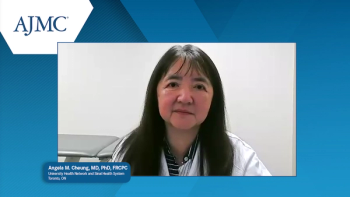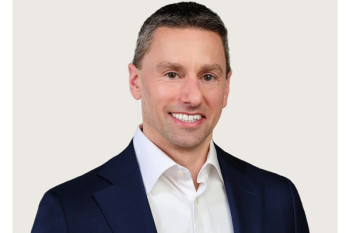
Finding Support and a Community for Alopecia Areata
Ebony explains the importance of a supportive network when living with alopecia areata and shares some advice for the newly diagnosed
Ebony: I find support from my friends and family to help me cope with alopecia. It’s important to me. Although people say, “You wear it very well, and you’re confident,” I still have my moments where I don’t feel like I’m adequate enough. I’ve an incredible group of friends, especially within the alopecia community. Since meeting them a few years ago, they’ve been a true blessing. We can share our insecurities and concerns with one another. I have 1 friend right now who has been honestly the greatest support ever. I’m grateful that I have a close group of friends but also family who can support me during these difficult times. Of course, my mom, my dad, my sisters—everyone is supportive and incredible.
I was able to connect with my friends from the alopecia community through conferences. I attended the National Alopecia Areata Foundation Annual Patient Conference in 2016. That was my first conference. My mom and I traveled to Washington, DC, for the first time, and being there was so freeing. It was incredible. That was the first time I’ve ever felt comfortable because I was around those who were like me. A lot of them helped me get adjusted with my alopecia. They said, “If you’ve never gone without your wig before, you will by the end of this weekend.” I thought to myself, “I’m not sure about that.” But it was 1 of the best decisions I’ve ever made. The most important statement from that weekend was when my mother told me that I was at peace.
A young person or an adult can turn to support within the alopecia community, of course. There are several support groups throughout the country, throughout the world even. There are so many options and opportunities to connect with them on social media. In person, you can go to conferences. You can watch people on different platforms explain how they go through alopecia. I didn’t have anyone to look up to in terms of this when I was a child, so being on the other side feels amazing. I’m so grateful that a lot of young people can look up to our generation whenever they have questions or concerns, they feel they’re alone. No one is alone in this community. There’s always someone you can talk to.
On social media, I look to Facebook, YouTube, Instagram of course, and TikTok. TikTok is major right now, and I made my debut a year ago. There’s 1 account that I love in particular on Facebook. It’s called the Bald Boss Movement. It encourages women and men from all over to embrace their baldness. Also, there’s 1 young lady I’d like to acknowledge. She’s absolutely amazing. Her name is Sheridan Ruth, and she’s a holistic coach. She talks about alopecia, how to walk in confidence, and owning who you are—not allowing this condition to define you. She’s absolutely amazing. Everyone on social media embrace their alopecia, but not in a way that glorifies it—just not allowing the condition to define who they are.
Some advice I have for those newly diagnosed with alopecia: you are not alone. There are many people throughout this country, throughout the world, who are dealing with your same condition. Please reach out to someone if you feel you need to get advice, if you want to talk and express your concerns. There are several support groups. There are incredible ways for you to get connected to everyone, especially living in a generation where social media is everywhere. There is more than 1 way to reach out to someone. Also, get connected with the alopecia foundation. NAAF is an incredible support system for our community.
Transcript lightly edited for clarity.
Newsletter
Stay ahead of policy, cost, and value—subscribe to AJMC for expert insights at the intersection of clinical care and health economics.






